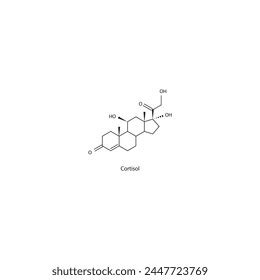What’s one often-overlooked factor that significantly impacts men’s recovery time between intense weightlifting sessions?

When men push their limits in the gym with intense weightlifting sessions, the focus for recovery often falls on familiar pillars: adequate sleep, sufficient protein intake, proper hydration, and maybe some active recovery or stretching. These elements are undoubtedly vital. However, there’s a more nuanced, internal factor that often goes unaddressed, yet plays a monumental role in how quickly a man bounces back and adapts: optimal hormonal balance, specifically the intricate dance between testosterone and cortisol.
The Silent Architects: Testosterone and Recovery
Testosterone, the primary male sex hormone, is well-known for its role in muscle growth, strength, and overall vitality. But its importance extends deeply into the recovery process. After an intense weightlifting session, muscle fibers are damaged, creating micro-tears. Testosterone steps in as a key anabolic (muscle-building) hormone, facilitating protein synthesis, repairing these damaged fibers, and ultimately leading to muscle hypertrophy and increased strength.

Adequate testosterone levels ensure that the body is primed for this repair and rebuilding process. When levels are optimized, the body can more efficiently rebuild muscle tissue, reduce inflammation, and restore energy reserves, leading to faster recovery times and readiness for the next session. Conversely, suboptimal testosterone levels can prolong recovery, impede muscle growth, and leave a man feeling fatigued and unmotivated.
The Double-Edged Sword: Cortisol’s Impact
While testosterone is largely anabolic, cortisol, often dubbed the ‘stress hormone,’ is predominantly catabolic. It’s released in response to physical and psychological stress, including the stress of intense weightlifting. In short bursts, cortisol is essential; it helps mobilize energy stores to fuel your workout and manage inflammation. However, chronically elevated cortisol levels are detrimental to recovery and muscle growth.

Persistent high cortisol breaks down muscle tissue (catabolism) to provide amino acids for energy, directly counteracting testosterone’s anabolic effects. It can also suppress immune function, increase inflammation, and interfere with sleep, all of which severely hinder recovery. An imbalance where cortisol levels remain high for extended periods post-workout, or due to external life stressors, will significantly prolong recovery time, lead to overtraining symptoms, and ultimately stall progress.
Optimizing Hormonal Harmony for Faster Recovery
Understanding this delicate hormonal balance is key to unlocking superior recovery. Here are actionable strategies to optimize your hormonal environment:
- Prioritize Quality Sleep: Deep sleep is crucial for testosterone production and cortisol regulation. Aim for 7-9 hours of uninterrupted sleep per night.
- Nutrient-Dense Diet: Ensure adequate intake of healthy fats (for hormone synthesis), quality protein (for repair), and complex carbohydrates (for energy restoration). Micronutrients like zinc, magnesium, and Vitamin D are vital for testosterone production.
- Strategic Training: Avoid chronic overtraining. Implement periodization, deload weeks, and listen to your body. Too much high-intensity work without sufficient rest can lead to sustained cortisol elevation.
- Stress Management: Beyond the gym, manage life stress through mindfulness, meditation, hobbies, or spending time in nature. Chronic psychological stress directly impacts cortisol levels.
- Hydration: Proper hydration supports all bodily functions, including hormone transport and nutrient delivery, which are essential for recovery.

Conclusion
While it’s easy to focus on external metrics like reps, sets, and calories, neglecting the internal hormonal environment is a significant oversight for men seeking optimal recovery from intense weightlifting. By understanding and actively working to optimize the balance between anabolic hormones like testosterone and catabolic hormones like cortisol, men can not only drastically reduce their recovery time but also enhance muscle growth, improve energy levels, and sustain long-term progress in their fitness journey. It’s time to look beyond the obvious and consider the powerful, often-unseen impact of hormonal harmony.







